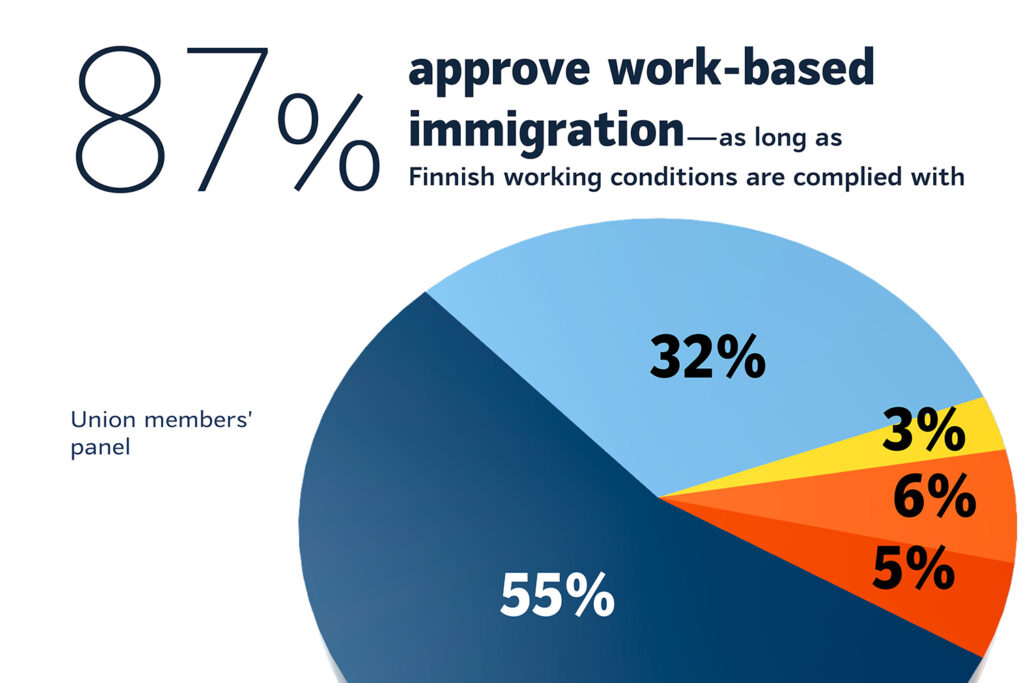Jari Berg recruits members across language barriers: “Don’t be afraid to speak English”
The number of languages used at workplaces has increased significantly, says Jari Berg, chief shop steward and occupational safety representative at Skaala IFN Oy.
JARI BERG
Chief shop steward and occupational safety representative
Skaala IFN Oy
Kauhava
“When I started working at the factory just under twenty years ago, you could really only hear Finnish and Estonian here with a bit of Russian thrown in. Today, the number of languages spoken is much higher. The situation in Ukraine is evident by the fact that Ukrainian refugees have come to work here. The single largest group is probably Romanians. Just recently, for example, six Romanians were hired as production workers. Most of them have joined the Industrial Union.
I think it’s a good thing that the employer has began to arrange Finnish language courses in cooperation with education provider Sedu. The training focuses on the vocabulary required in our work. The teachers come to the factory, allowing us to hold the voluntary training at work during working hours. The course was popular, and more such training will be organised in the future.
It would be very helpful as a shop steward to speak five or six languages. So far, I’ve managed with Finnish, English and some kind of sign language. In fact, some of our foreign employees are more fluent in Finnish than English. Recently, I went to tell two Burmese employees about the union in English, but they responded by saying they understand Finnish better.
The teachers came here to the factory, allowing us to hold the language course at work during working hours.
Still, the fact is that English is usually the first common language in the workplace and you shouldn’t be afraid to speak English. I also had a long break when I didn’t speak English at all, but when I started using the language more, the basics learnt in school started to come back to me.
If you’re wondering about the meaning of a word and you don’t know the answer, then instead of trying to make something up, go on the computer to check that you’re using the right word correctly. That will save you from quite a few problems. If possible, always check the automatic translations made with Google’s translator. One time, I translated a text in Russian and asked my colleague Oksana if she could check the translation. I got the text back full of red ink and question marks. We then went over the text together one line at a time.
In a crisis, the importance of being able to communicate and understand each other is even greater. For example, applications for strike subsidies during the strike and earnings-related unemployment allowance during layoffs have taken up a lot of resources. The union is fairly well aware of the languages spoken in different workplaces. That’s why it would be smart to share information in other languages spoken by members, too, instead of only in Finnish, Swedish and English.”




